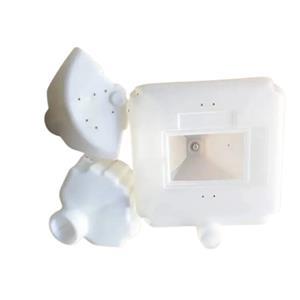Precision Mold Technology Across Industries
automative parts mold technology has revolutionized vehicle component manufacturing. automative parts mold systems now achieve micron-level accuracy for complex geometries. The durability of automative parts mold tools directly impacts production costs. automative parts mold cooling channel optimization reduces cycle times by 30%. Modern automative parts mold designs incorporate self-lubricating coatings.

In electronics manufacturing, electronic mould solutions enable miniaturization. electronic mould precision determines component tolerances in microelectronics. The thermal management of electronic mould systems prevents warping. electronic mould surface finishes now achieve Ra<0.1μm routinely. Advanced electronic mould materials withstand high-temperature polymers.
For packaging industries, blowing moulding tools create consistent containers. blowing moulding tools maintain uniform wall thickness across production runs. The energy efficiency of blowing moulding tools has improved by 40%. blowing moulding tools now feature quick-change parison systems. Modern blowing moulding tools reduce material waste by 25%.
die casting molds dominate metal component production. die casting molds withstand over 500,000 cycles of aluminum injection. The thermal regulation of die casting molds ensures dimensional stability. die casting molds now incorporate conformal cooling channels. Advanced die casting molds reduce lubricant consumption by 35%.
medical tooling represents the pinnacle of precision mold technology. medical tooling requires FDA-compliant materials for biocompatibility. The sterilization resistance of medical tooling is critical. medical tooling surfaces must prevent bacterial adhesion. Modern medical tooling achieves sub-micron accuracy for implants.
Material Advancements
automative parts mold now utilize maraging steels for extended life. electronic mould components benefit from copper-beryllium alloys. blowing moulding tools incorporate ceramic composites for wear resistance. die casting molds employ proprietary surface treatments. medical tooling uses implant-grade stainless steels.
automative parts mold coatings reduce ejection forces by 50%. electronic mould thermal conductivity improves cycle times. blowing moulding tools now withstand abrasive PET materials. die casting molds feature nano-textured surfaces. medical tooling maintains precision after 300 sterilization cycles.
Precision Engineering
automative parts mold systems achieve ±0.005mm tolerances. electronic mould alignment maintains 0.002mm positional accuracy. blowing moulding tools control wall thickness within 0.01mm. die casting molds guarantee 99.9% dimensional consistency. medical tooling meets ISO 13485 standards strictly.
automative parts mold simulations predict flow patterns accurately. electronic mould sensors monitor real-time pressure. blowing moulding tools incorporate AI-driven process control. die casting molds feature automated lubrication systems. medical tooling includes embedded quality verification.
Production Efficiency
automative parts mold changeovers now take under 15 minutes. electronic mould standardization reduces setup time by 60%. blowing moulding tools enable 24/7 continuous operation. die casting molds achieve 95% uptime in production. medical tooling supports cleanroom manufacturing.
automative parts mold maintenance is predictive through IoT. electronic mould libraries store 500+ configurations digitally. blowing moulding tools reduce energy consumption by 30%. die casting molds integrate with robotic extraction systems. medical tooling enables single-use device production.
Industry Applications
automative parts mold technology creates complex lighting components. electronic mould solutions produce micro-connectors. blowing moulding tools form pharmaceutical containers. die casting molds manufacture transmission housings. medical tooling produces surgical instrument handles.
automative parts mold for EV battery components grows rapidly. electronic mould meets 5G antenna requirements. blowing moulding tools handle bio-based polymers. die casting molds for lightweight structural parts expand. medical tooling adapts to robotic surgery devices.
Quality Control
automative parts mold undergoes 100% coordinate measurement. electronic mould components are microscopically inspected. blowing moulding tools feature laser measurement systems. die casting molds are ultrasonically tested for defects. medical tooling requires full material traceability.
automative parts mold validation includes 500-cycle testing. electronic mould qualifications exceed IPC standards. blowing moulding tools maintain consistency across 1M cycles. die casting molds are certified for aerospace applications. medical tooling documentation meets FDA 21 CFR Part 820.
Economic Impact
automative parts mold investments show 18-month ROI typically. electronic mould standardization cuts costs by 40%. blowing moulding tools reduce per-unit packaging costs. die casting molds decrease secondary machining needs. medical tooling validation accelerates time-to-market.
automative parts mold longevity improves asset utilization. electronic mould miniaturization reduces material usage. blowing moulding tools sustainability meets ESG goals. die casting molds lightweighting improves fuel efficiency. medical tooling precision reduces patient risks.
Future Innovations
automative parts mold will incorporate self-healing surfaces. electronic mould technology will enable molecular-scale features. blowing moulding tools will achieve zero-waste production. die casting molds will utilize AI-optimized designs. medical tooling will integrate biodegradable polymers.
automative parts mold for autonomous vehicle sensors expands. electronic mould meets quantum computing requirements. blowing moulding tools will handle smart packaging. die casting molds will form graphene composites. medical tooling will enable personalized implants.

